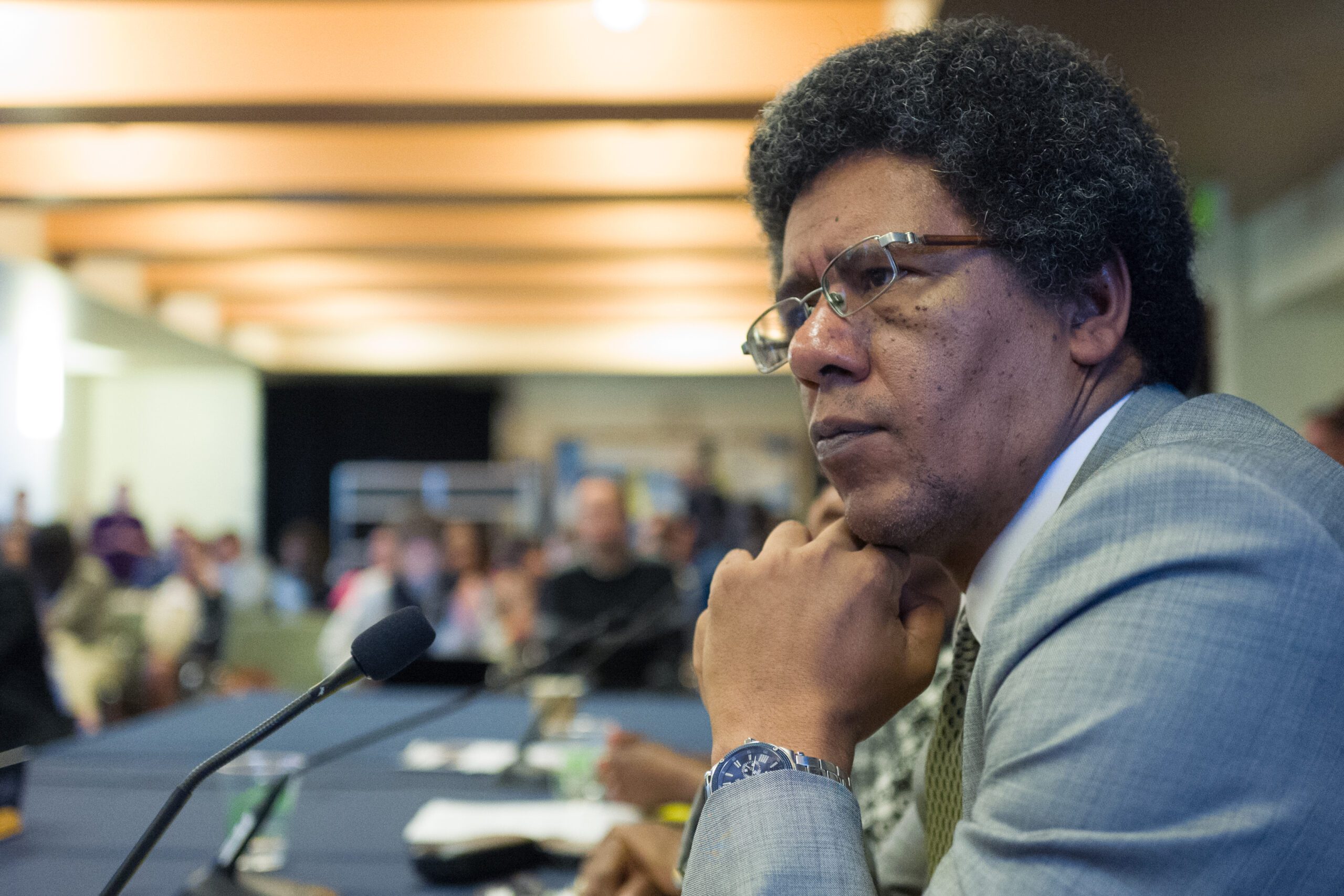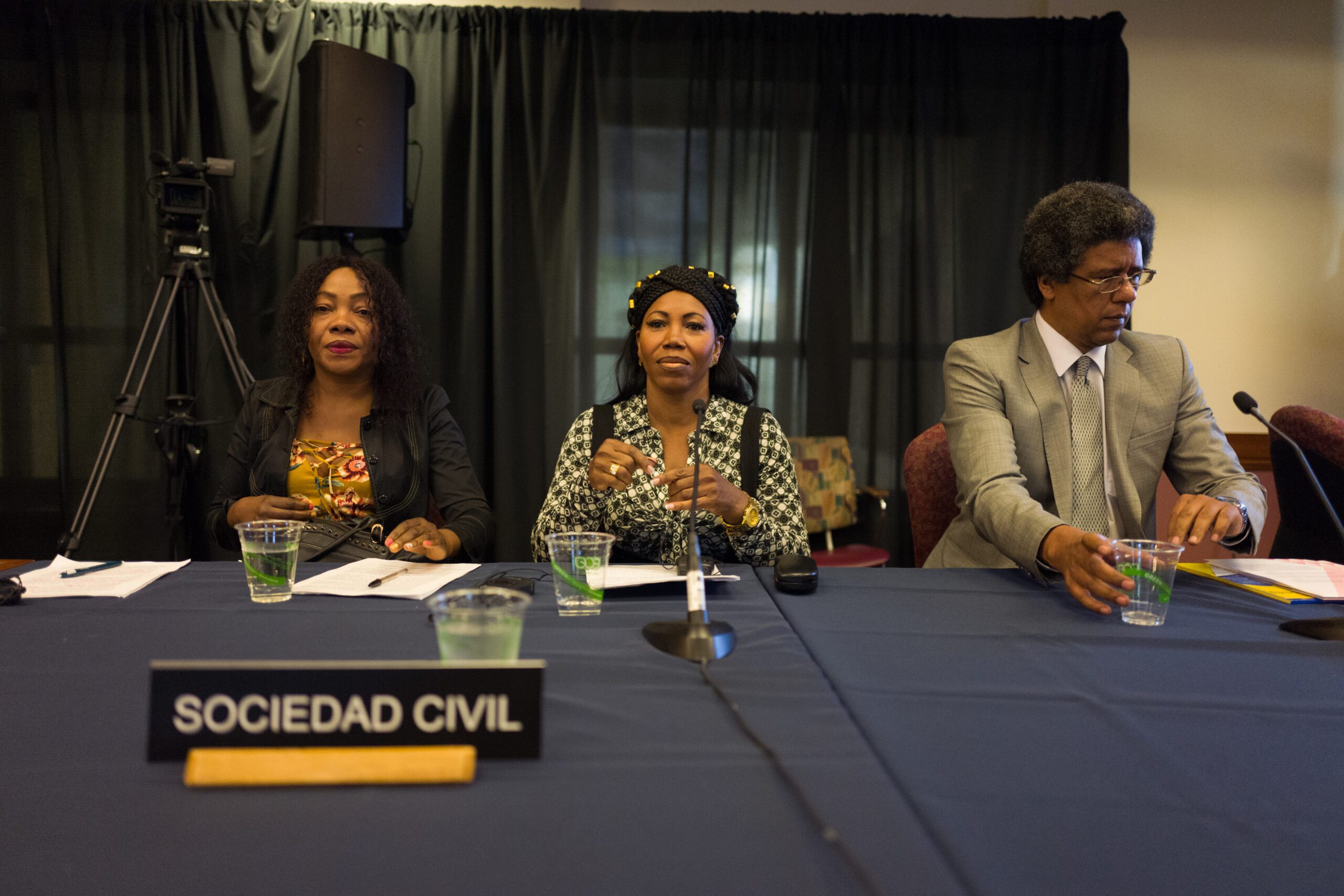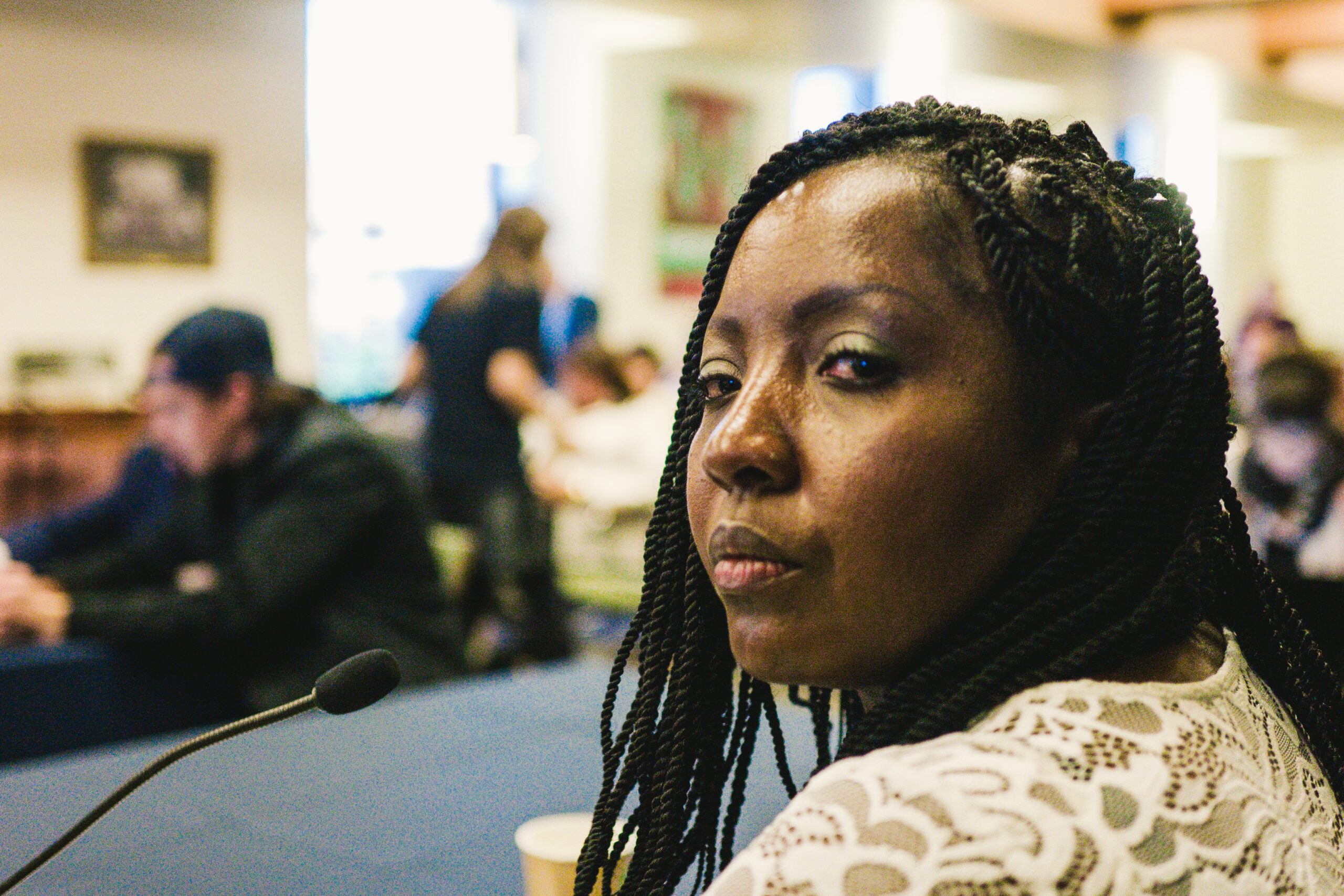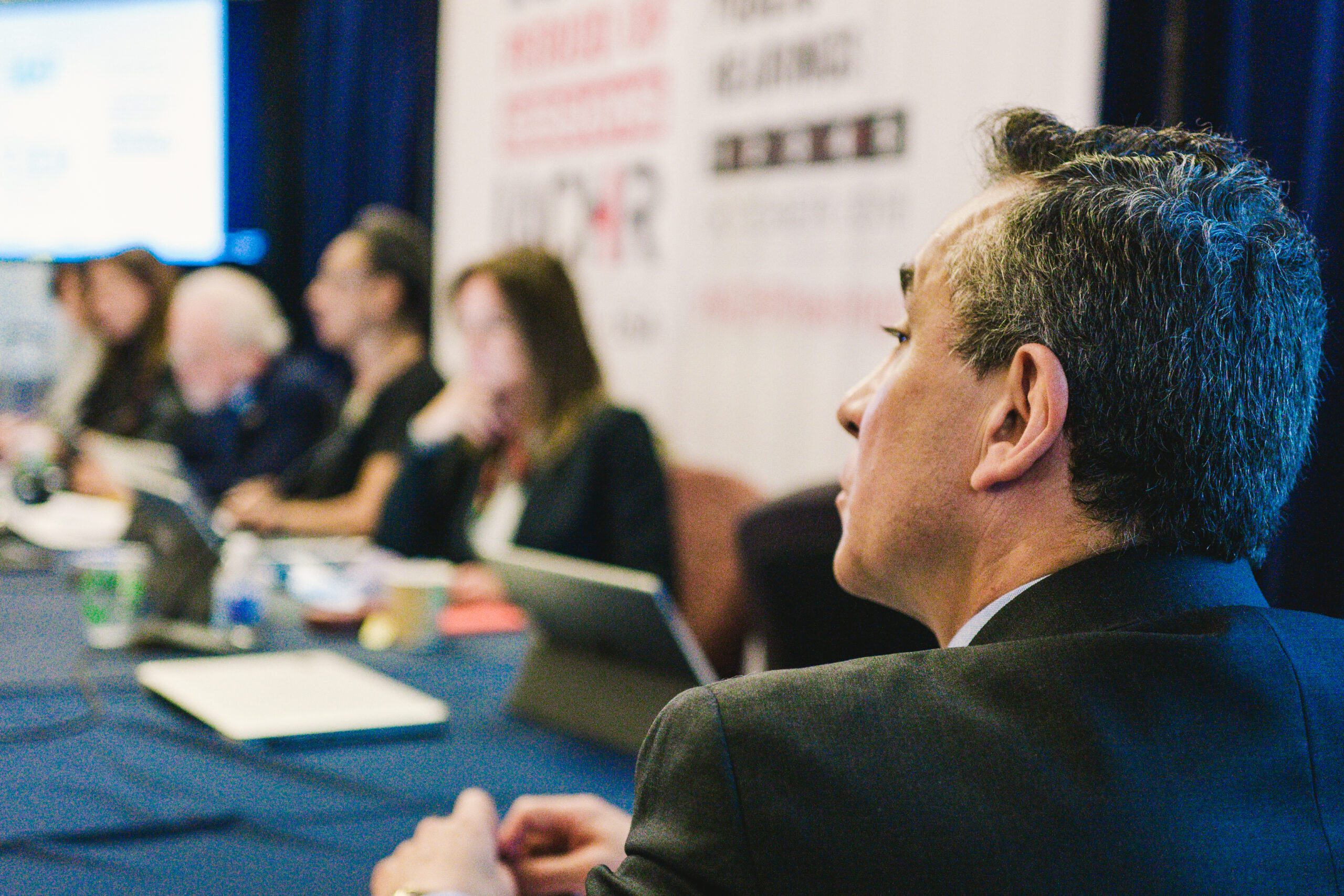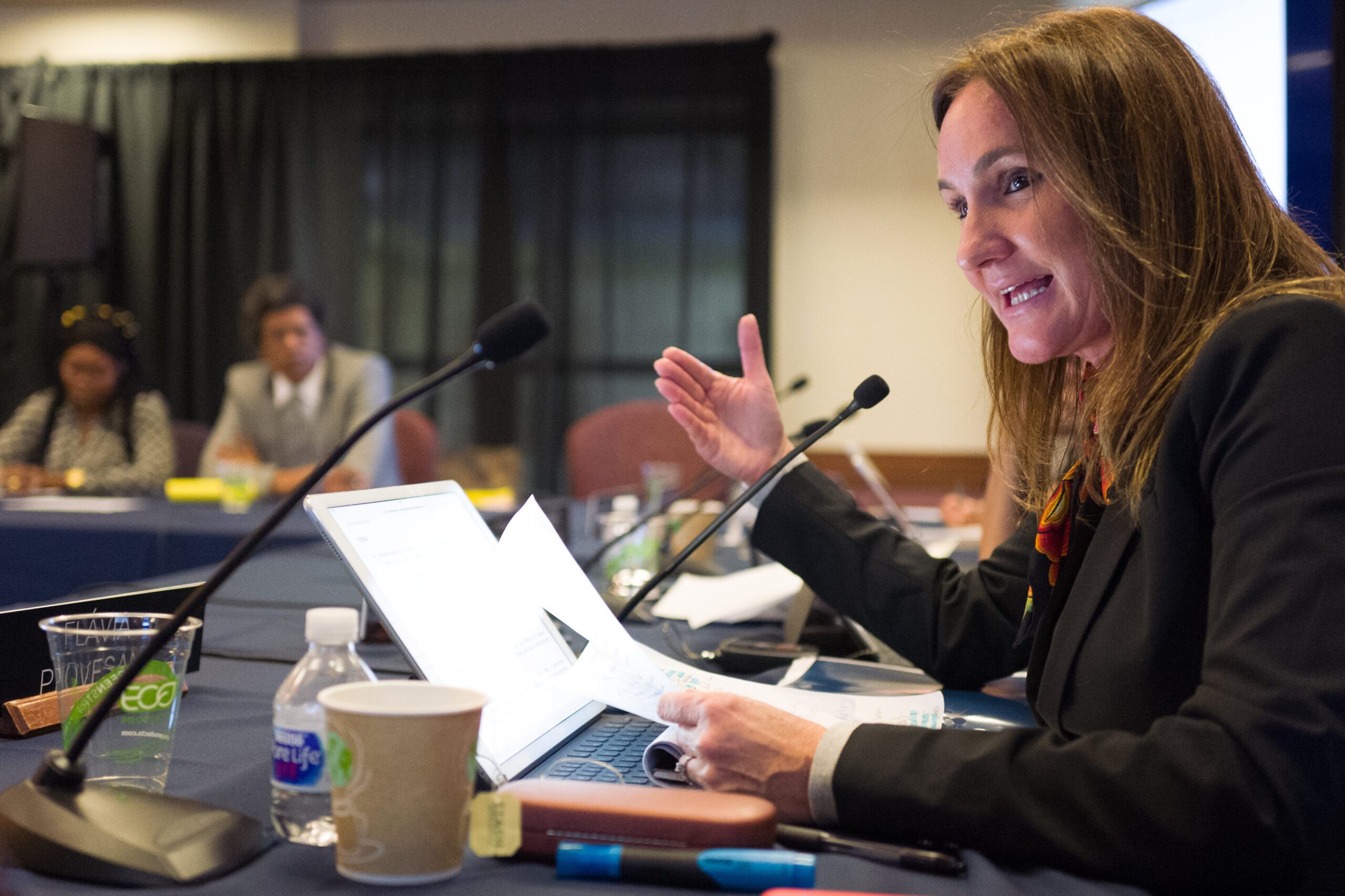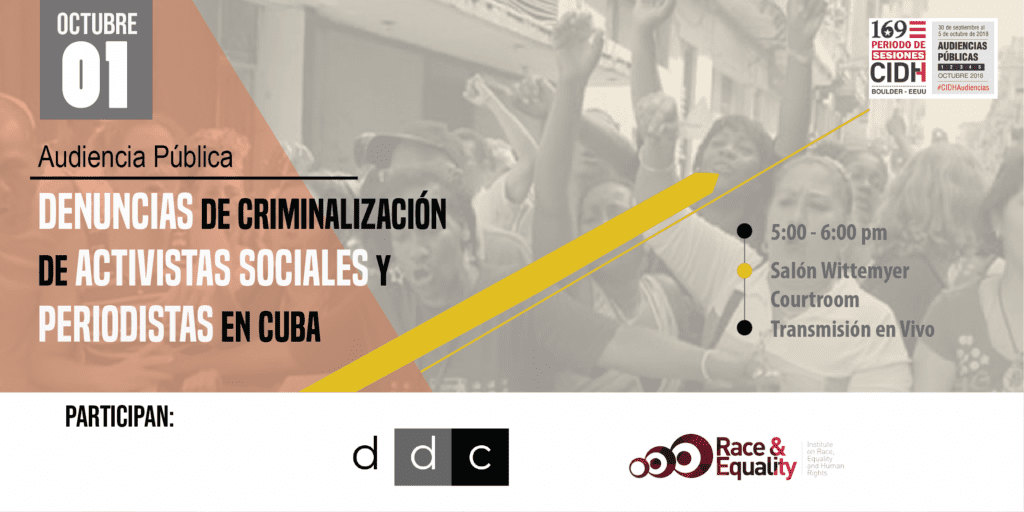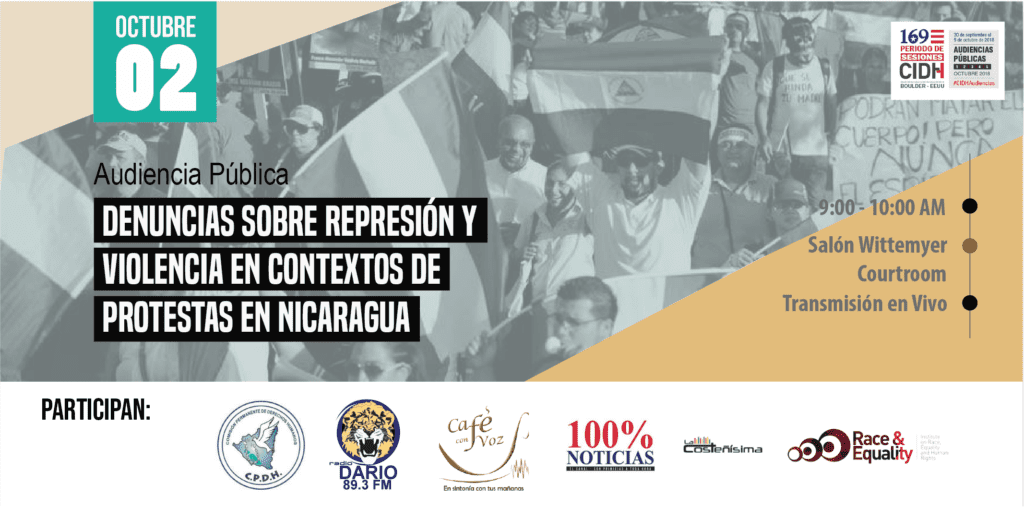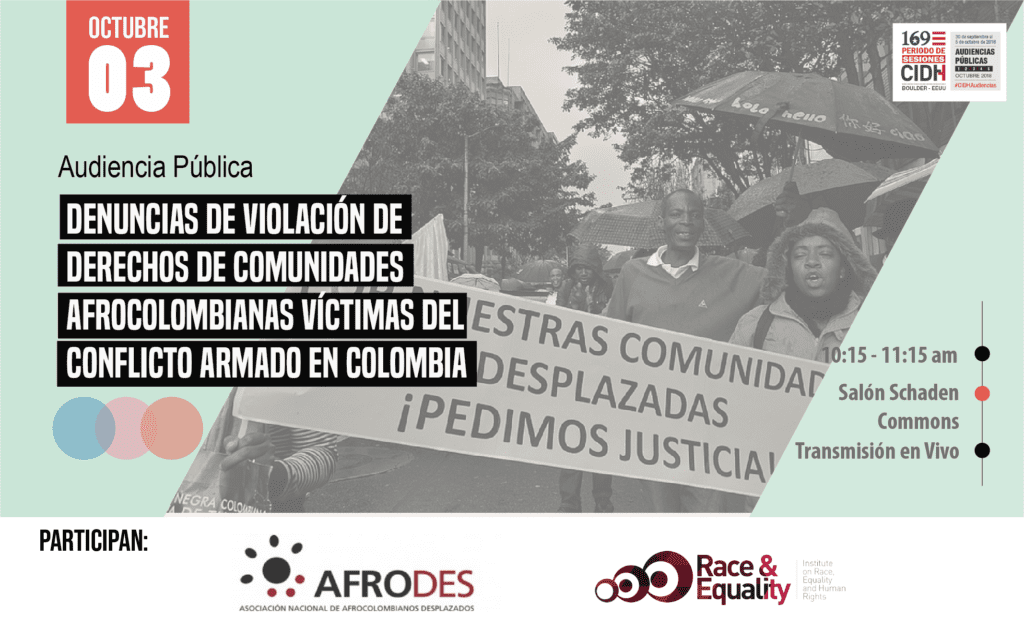#SalvemosLaCIDH: Addressing the Financial Crisis Facing the Inter-American Commission
OAS Member States,
The Coalition for Human Rights in the Americas, and the members of other regional and global networks from civil society, express our deep concern over the severe financial crisis currently affecting the Inter-American Commission of Human Rights (IACHR). We endorse this statement in order to appeal all Member States of the Organization of American States (OAS) to take the necessary actions to guarantee the immediate and proper funding of the IACHR in order to fulfill its mandate. In addition, we urgently call for the creation of a sustainable fund to finance the Organs of the Inter-American Human Rights System (IHRS), in order to address the precarious situation, which both the Commission and Inter-American Court of Human Rights have been going through since in the last few years.
The Inter-American Commission is mandated to promote the observance and protection of human rights in the Americas, and acts as a consultative organ to the OAS in this area. It is the only regional mechanism that supervises the obligations of all Member States of the OAS in this area, and constitutes the last resort for defending against violations of fundamental rights in the continent.
The IACHR is an international referent, due to its great labour of protecting thousands of human rights defenders, who live threatened and criminalized in the Americas. This organ watches over the indigenous people and afro-descendant people’s rights, women and children, and the LGTBI community rights as well, among other vulnerable populations. The role of the IACHR, not only in the area of human rights protection, but also in the implementation of measures to promote their accomplishment, affects almost a billion people across the region.
In spite of that, the Inter-American Commission has historically suffered from a structural lack of funds, which are currently reaching the point of effectively compromising the Commission’s ability to fulfill its basic functions, including its mandate assigned by the OAS Member States. The Commission itself has announced that on July 31st of 2016 the contracts of 40 percent of its personnel will expire, and at this time the Commission does not have the funds—or the expectation of receiving the funds—to be able to renew them. In addition, the IACHR has reported that it has been forced to suspend the country visits it had planned for this year, as well as the 159th and 160th Period of Sessions, which had been scheduled for July and October of this year.
In contrast with other human rights protection organs, either national or international, the financing received by the IACHR from the regular OAS fund, meaning from the Member States, is contradictory with the countries’ wish to aspire to build a more democratic region. In 2016, the regular budget provided by the fund was around $5,4287.9 million dollars, which is 6.44 percent of the annual budget of the OAS – by comparison, the Council of European member States provides 41.5 percent of its annual budget to the promotion and protection of human rights.
Even though the OAS General Assembly has approved in the past resolutions committing to address this matter, these changes have not materialized with the required increase of resources, that would allow both the Commission and Court – whose budget will be reduced in a third part by the end of the year, if nothing changes – to have with the proper funding to successfully fulfill their mandates.
In addition, the aim of this petition is not only for the IACHR to be able to carry out with the scheduled activities for the current year, to renew the contracts of 40 percent of its staff and to conduct the 159th and 160th Period of Sessions, but also to create a structure for this purpose that converts the funding of those organs into a sustainable practice, significantly increasing the budget that the OAS provides to the Inter-American Human Rights System.
The signing Civil Society organizations see in this crisis a unique opportunity to reinforce the OAS Member States’ commitment to human rights in the continent. This is why we call on countries to figure out how to secure a strong and stable funding structure, which effectively guarantees the protective devices and tools that the ISHR provides to millions of people in the Americas.
Sincerely,

The International Institute on Race, Equality and Human Rights
In addition to over 300+ Civil Society Organizations worldwide
Argentina
Clínica en Discapacidad y Derechos Humanos,
Universidad Nacional de Mar del Plata
Centro de Estudios Legales y Sociales (CELS)
Brasil
Associação Juízes para a Democracia (AJD)
Articulação para o Monitoramento dos Direitos Humanos no Brasil
Centro de Agricultura Alternativa do Norte de Minas (CAA/NM)
Conselho Indigenista Missionário (CIMI)
Conectas Direitos Humanos
FIAN Brasil
Grupo Tortura Nunca Mais do Rio de Janeiro
Instituto de Estudos Socioeconómicos – INESC
Justiça Global
Movimento dos Atingidos e Atingidas por Barragem (MAB)
Bolivia
Oficina Jurídica Para la Mujer
Canadá
Abogados sin fronteras
Colombia
Colectivo de Abogados José Alvear Restrepo (CCAJAR)
Colectivo Socio jurídico Orlando Fals Borda
Comisión Colombiana de Juristas (CCJ)
Comisión Intereclesial de Justicia y Paz de Colombia
Consultorio Jurídico Internacional de la Facultad de Derecho de la Universidad Santo Tomás -Bogotá-
Corporación REINICIAR
Consultoría para los Derechos Humanos y el Desplazamiento Forzado (CODHES) Corporación Jurídica Libertad
Corporación Jurídica Yira Castro
Corporación Sisma Mujer
FIAN Colombia
Fundación Comité de Solidaridad con los Presos Políticos
Red Colombiana de Mujeres por los Derechos Sexuales y Reproductivos
Costa Rica
Agenda Política de Mujeres
Asociación Ciudadana ACCEDER
Asociación Gerontológica Costarricense (AGECO)
Asociación Manu
Beso Diverso
Centro de Investigación y Promoción para América Central de Derechos Humanos (CIPAC)
Centro Feminista de Información y Acción (CEFEMINA)
Centro Internacional para los Derechos Humanos de los Migrantes (CIDEHUM) Colectiva Caminando
Colectiva Irreversibles
Colectivo de Ciclismo Urbano ‘Las Luciérnagas’
Confederación de Trabajadores Rerum Novarum (CTRN)
Defensa de Niñas y Niños (Internacional DNI)
Este es Mi Cuerpo
Familias Diversas
Federación de Estudiantes de la Universidad de Costa Rica
Foro por los Derechos de las Personas con Discapacidad
Frente por los Derechos igualitarios
Fundación Bandera Ecológica
Fundación PANIAMOR
Furia Rosa
Grupo Poder Ciudadano
Hijas de la Negrita
MULABI – Espacio Latinoamericano de Sexualidades y Derechos
Peras del Olmo
Personas, sexualidades y géneros (PSG)
¿Piropos o acoso?
Proyecto Lyra
Psicology Community
Red Feminista contra la Violencia hacia las Mujeres
Servicio Jesuita para Migrantes
Tío Hugo
Unión Asesora Afrodescendiente (UNASAF)
Ecuador
Centro de Documentación en Derechos Humanos “Segundo Montes Mozo S.J.”
(CSMM)
Comisión Ecuménica de Derechos Humanos (CEDHU)
Comité Permanente por la Defensa de los Derechos Humanos de Guayaquil (CDH)
Comité Nacional de Víctimas de Lesa Humanidad y Graves Violaciones de Derechos Humanos en Ecuador
Observatorio Sociolaboral y Diálogo Social en el Ecuador OSLADE
Pueblo Sarayaku
El Salvador
Agrupación Ciudadana por la Despenalización del Aborto Terapéutico, Etico y Eugenésico en El Salvador.
Asociación Comunicando y Capacitando a Mujeres Trans con VIH en El Salvador(COMCAVIS TRANS)
Asociación Pro Búsqueda de Niñas y Niños
Coalición Salvadoreña para la Corte Penal Internacional
Colectiva Feminista para el Desarrollo Local
Comisión de Derechos Humanos de El Salvador (CDHES)
Espacio de Mujeres Lesbianas por la Diversidad (ESMULES)
Fundación de Estudios para la Aplicación del Derecho (FESPAD)
Oficina de Tutela Legal Dra. María Julia Hernández
Red de Defensores y Defensoras de El Salvador
Red Salvadoreña de Defensoras de Derechos Humanos
Servicio Social Pasionista SSPAS
Estados Unidos
AFL-CIO, Central Sindical de los Estados Unidos
American Civil Liberties Union (ACLU)
Center for Human Rights & Constitutional Law
Church World Service
Clínica de Derechos Humanos de la Universidad de Texas
Institute for Agriculture and Trade Policy
Institute for Policy Studies – Global Economy Program
National Security Archive
Sister Parish, Inc.
Unitarian Universalist Service Committee
Guatemala
Alianza frente a la Criminalización
Asociación El Refugio de la Niñez
Asociación Familiares de Detenidos-Desaparecidos de Guatemala, FAMDEGUA
Asociación para el Desarrollo Integral de las Víctimas de la Violencia en las Verapaces, Maya Achi. (ADIVIMA)
Centro de Acción Legal-Ambiental y Social de Guatemala (CALAS)
Centro Internacional para Investigaciones en Derechos Humanos (CIIDH)
Centro para la Defensa Legal Indígena (DLI)
Centro para la Acción Legal en Derechos Humanos (CALDH)
Comisión de Derechos Humanos de Guatemala
Comité de Desarrollo Campesino (CODECA)
Comunidades en Resistencia del Estor, Izabal
Convergencia por los Derechos Humanos
Grupo de Trabajo contra la Desaparición Forzado de Guatemala
Farmacéuticos Mundi Guatemala
Foro de ONG Internacionales en Guatemala (FONGI)
Fundación Myrna Mack
Grupo Guatemalteco de Mujeres (GGM)
Guatemala Solidarität Österreich (Austria-Guatemala)
Iniciativa Mesoamericana de Mujeres Defensoras de Derechos Humanos
Instituto de Estudios Comparados en Ciencias Penales de Guatemala (ICCPG)
Mujeres en Defensa del Territorio, Guatemala
Oficina de Derechos Humanos del Arzobispado de Guatemala (ODHAG)
Organización de Apoyo a una Sexualidad Integral frente al Sida (OASIS)
Red Nacional de Protección de Defensoras de Guatemala
Red de la No Violencia contra las Mujeres (REDNOVI)
Iglesia Luterana ILUGUA de Guatemala
Honduras
Asociación Colectiva de Mujeres Hondureñas (CODEMUH)
Asociación de Jueces por la Democracia (AJD)
Casa Alianza Honduras
Comité por la Libertad de Expresión (C-Libre)
Centro de Investigación y Promoción de los Derechos Humanos (CIPRODEH)
Comunidad Gay Sampedrana para la Salud Integral
Equipo de Reflexión, Investigación y Comunicación de la Compañía de Jesús en Honduras (ERIC-SJ)
Espacio Asociación de Cooperación Internacional (ACI)
Foro de Mujeres por la Vida
Fundación para la Salvaguardia del Medio Ambiente en el Democrático Desarrollo Socioeconómico y de las Instituciones (FUNDAMENTE)
Movimiento Amplio por la Dignidad y la Justicia (MADJ)
Movimiento de Mujeres por la Paz “Visitación Padilla”
Organización Fraternal Negra Hondureña, OFRANEH
Red Lésbica Cattrachas
Honduras Delegation, Honduras-Alemania
Cadena de Derechos Humanos Honduras (CADEHO), Honduras-Alemania
México
Asociación Jalisciense de Apoyo a los Grupos Indígenas, A.C. (AJAGI) (Guadalajara, Jal.)
Bowerasa, A.C. “Haciendo Camino” (Chihuahua, Chih.)
Casa del Migrante de Saltillo (Saltillo, Coah.)
Católicas por el Derecho a Decidir, A.C. (Ciudad de México)
Centro “Fray Julián Garcés” Derechos Humanos y Desarrollo Local, A. C. (Tlaxcala, Tlax.)
Centro de Apoyo al Trabajador, A.C. (CAT) (Ciudad de México)
Centro de Derechos Humanos “Don Sergio” (Jiutepec, Mor.)
Centro de Derechos Humanos “Fray Bartolomé de Las Casas”, A. C. (San Cristóbal de Las Casas, Chis)
Centro de Derechos Humanos “Fray Francisco de Vitoria O.P.”, A. C. (Ciudad de México)
Centro de Derechos Humanos “Fray Matías de Córdova”, A.C. (Tapachula, Chis.)
Centro de Derechos Humanos “Juan Gerardi”, A. C. (Torreón, Coah.)
Centro de Derechos Humanos “Miguel Agustín Pro Juárez”, A. C. (Ciudad de México)
Centro de Derechos Humanos de la Montaña, Tlachinollan, A. C. (Tlapa, Gro.)
Centro de Derechos Humanos de las Mujeres (CEDEHM)
Centro de Derechos Humanos de las Mujeres (Chihuahua)
Centro de Derechos Humanos de los Pueblos del Sur de Veracruz “Bety Cariño”, A.C. (Tatahuicapan de Juárez, Ver.)
Centro de Derechos Humanos Digna Ochoa, A.C (Tonalá, Chis.)
Centro de Derechos Humanos Paso del Norte (Cd. Juárez, Chih.)
Centro de Derechos Humanos Toaltepeyolo (Orizaba, Veracruz)
Centro de Derechos Humanos Victoria Diez, A.C. (León, Gto.)
Centro de Derechos Humanos Zeferino Ladrillero (CDHZL) (Estado de México)
Centro de Derechos Indígenas “Flor y Canto”, A. C. (Oaxaca, Oax.)
Centro de Derechos Indígenas A. C. (Bachajón, Chis.)
Centro de Investigación y Capacitación Propuesta Cívica A. C. (Propuesta Cívica) (Ciudad de México)
Centro de Justicia para la Paz y el Desarrollo, A. C. (CEPAD) (Guadalajara, Jal.)
Centro de los Derechos del Migrante (Ciudad de México)
Centro de Reflexión y Acción Laboral (CEREAL-DF) (Ciudad de México)
Centro de Reflexión y Acción Laboral (CEREAL-Guadalajara) (Guadalajara, Jal.)
Centro Diocesano para los Derechos Humanos “Fray Juan de Larios”, A.C. (Saltillo, Coah.)
Centro Juvenil Generando Dignidad (Comalcalco, Tabasco)
Centro Mexicano de Derecho Ambiental (CEMDA) (Ciudad de México)
Centro Mujeres (La Paz, BCS.)
Centro Regional de Defensa de DDHH José María Morelos y Pavón, A.C. (Chilapa, Gro.)
Centro para el Desarrollo Integral de la Mujer (CEDIMAC) – Ciudad Juarez
Centro Regional de Derechos Humanos “Bartolomé Carrasco”, A.C. (BARCA) (Oaxaca, Oax.)
Ciencia Social Alternativa, A.C. KOOKAY (Mérida, Yuc.)
Ciudadanía Lagunera por los Derechos Humanos, A.C. (CILADHAC) (Torreón, Coah.)
Ciudadanos en Apoyo a los Derechos Humanos A.C. (CADHAC), México
Ciudadanos por una Causa en Común A.C.
Colectivo contra la Tortura y la Impunidad (CCTI) (Ciudad de México)
Colectivo Educación para la Paz y los Derechos Humanos, A.C. (CEPAZDH) (San Cristóbal de Las Casas, Chis.)
Comisión de Derechos Humanos y Laborales del Valle de Tehuacán, A.C. (Tehuacán, Pue.)
Comisión de Solidaridad y Defensa de los Derechos Humanos, A.C. (COSYDDHAC) (Chihuahua, Chih.)
Comisión Independiente de Derechos Humanos de Morelos, A. C. (CIDHMOR)(Cuernavaca, Mor.)
Comisión Regional de Derechos Humanos “Mahatma Gandhi”, A. C. (Tuxtepec, Oax.)
Comité Cerezo (Ciudad de México)
Comité Cristiano de Solidaridad Monseñor Romero (Ciudad de México)
Comité de Defensa de las Libertades Indígenas (Palenque, Chis.)
Comité de Defensa Integral de Derechos Humanos Gobixha A.C. (CODIGODH) (Oaxaca, Oax.)
Comité de Derechos Humanos “Fr. Pedro Lorenzo de la Nada”, A. C. (Ocosingo, Chis.)
Comité de Derechos Humanos “Sierra Norte de Veracruz”, A. C. (Huayacocotla, Ver.)
Comité de Derechos Humanos Ajusco (Ciudad de México)
Comité de Derechos Humanos de Colima, A. C. (Colima, Col.)
Comité de Derechos Humanos de Comalcalco, A. C. (CODEHUCO) (Comalcalco, Tab)
Comité de Derechos Humanos de Tabasco, A. C. (CODEHUTAB) (Villahermosa, Tab)
Comité de Derechos Humanos y Orientación Miguel Hidalgo, A. C. (Dolores Hidalgo, Gto.)
Comité de Familiares de Detenidos Desaparecidos “Hasta Encontrarlos”(Ciudad de México)
Comité Sergio Méndez Arceo Pro Derechos Humanos de Tulancingo, Hgo A.C.(Tulancingo, Hgo.)
Comunicación e Información de la Mujer (CIMAC)
Consultoría Técnica Comunitaria AC (CONTEC) (Chihuahua) El Caracol, A.C (Ciudad de México)
Consultoría Técnica Comunitaria, A.C. Chihuahua, México
Coordinación Alemana por los Derechos Humanos en México
Dirección de Programas de Incidencia de la Universidad Iberoamericana Ciudad de México
Documenta, AC
Estancia del Migrante González y Martínez, A.C. (Querétaro, Qro.)
Frente Cívico Sinaloense. Secretaría de Derechos Humanos (Culiacán, Sin.)
Fundación para la Justicia y el Estado Democrático de Derecho (Ciudad de México)
Fundar, Centro de Análisis e Investigación
Grupo de Información en Reproducción Elegida (GIRE)
I(DH)EAS, Litigio Estratégico en Derechos Humanos A.C.
Indignación, A. C. Promoción y Defensa de los Derechos Humanos (Mérida, Yuc.)
Iniciativa Ciudadana y Desarrollo Social, INCIDE Social, A.C.
Institucional de Derechos Humanos y Paz (Guadalajara, Jal.)
Instituto de Derechos Humanos Ignacio Ellacuria, S.J. Universidad Iberoamericana- Puebla (Puebla, Pue.)
Instituto de Liderazgo Simone de Beauvoir
Instituto Guerrerense de Derechos Humanos, A. C. (Chilpancingo, Gro.)
Instituto Mexicano de Derechos Humanos y Democracia A.C.
Instituto Mexicano para el Desarrollo Comunitario, A. C. (IMDEC) (Guadalajara, Jal.)
Instituto Tecnológico y de Estudios Superiores de Occidente.Programa
Justicia, Derechos Humanos y Género, A.C. (Ciudad de México)
La 72, Hogar-Refugio para Personas Migrantes (Tenosique, Tabasco)
Mujeres Indígenas por la Conservación, Investigación y Aprovechamiento de los Recursos Naturales, A. C. (CIARENA)(Oaxaca)
Oficina de Defensoría de los Derechos de la Infancia A.C. (ODI) (Ciudad de México),
Organizaciones Mexicanas sin fines de Lucro
Programa de Asuntos de Género de la Universidad Iberoamericana Ciudad de México
Programa de Asuntos Migratorios de la Universidad Iberoamericana Ciudad de México
Programa de Derechos Humanos de la Universidad Iberoamericana Ciudad de México
Programa de Interculturalidad y Asuntos Indígenas de la Universidad Iberoamericana, Ciudad de México
Programa de Medio Ambiente de la Universidad Iberoamericana Ciudad de México
Programa Institucional de Derechos Humanos y Paz
Programa Universitario de Derechos Humanos. UIA –León (León, Gto.)
Promoción de los Derechos Económicos, Sociales y Culturales (PRODESCAC) (Estado de México)
Proyecto de Derechos Económicos, Sociales y Culturales (ProDESC) (Ciudad de México)
Proyecto sobre Organización, Desarrollo, Educación e Investigación (PODER) (Ciudad de México)
Red de Periodistas de a Pie
Red Nacional de Organismos Civiles de Derechos Humanos “Todos los Derechos para Todas y Todos”
Respuesta Alternativa, A. C. Servicio de Derechos Humanos y Desarrollo Comunitario (San Luis Potosí)
Servicio, Paz y Justicia de Tabasco, A.C. (SERPATAB) (Villahermosa, Tab.)
Servicios de Inclusión Integral, A.C. (SEIINAC) (Pachuca, Hgo.)
Spatium Libertas, A.C.
Tequio Jurídico A.C. (Oaxaca, Oax.)
Voces Mesoamericanas, Acción con Pueblos Migrantes AC (San Cristobal de las Casas, Chiapas).
Nicaragua
Centro de Asistencia Legal a Pueblos Indígenas (CALPI)
Centro Nicaragüense de Derechos Humanos (CENIDH)
Centro por la justicia y Derechos Humanos de la Costa Atlántica de Nicaragua
(CEJUDHCAN)
Iniciativa Nicaragüense de mujeres defensoras de derechos humanos
Movimiento Autónomo de Mujeres
Movimiento contra el abuso sexual
Panamá
Alianza Ciudadana Pro Justicia
Alianza de Mujeres de Panamá
Centro de Asistencia Legal Popular
Mesa Nacional de Migrantes y Refugiados de Panamá
Movimiento Democrático Popular
Red de Derechos Humanos de Panamá
Paraguay
Ágora Espacio Civil Paraguay
Perú
Asociación Pro Derechos Humanos (APRODEH)
Asociación Paz y Esperanza
Centro de Políticas Públicas y Derechos Humanos – Perú EQUIDAD
Centro de Promoción y Defensa de los Derechos Sexuales y Reproductivos – Promsex
Coordinadora Nacional de Derechos Humanos (CNDDHH)
Uruguay
Instituto de Estudios Legales y Sociales del Uruguay (IELSUR)
Venezuela
Centro de Derechos Humanos de la Universidad Católica Andrés Bello
Espacio Público
Vicaría de derechos humanos de Caracas
Regionales y Globales
Acompañamiento de Austria (ADA)
Alianza de Redes Ambientales (ARA)
American Friends Service Committee (AFSC)
Amnistía Internacional
Asociación de Investigación y Especialización sobre temas Iberoamericanos (AIETI) Asociación Interamericana para la Defensa del Ambiente (AIDA)
Asociación Paz con Dignidad, España
Asociación Regional Centroamericana para el Agua y el Ambiente. ARCA
Association for Women’s Rights in Development (Awid)
Ayuda de la Iglesia Noruega (AIN)
Centro de Derechos Reproductivos (CDR)
Centro por la Justicia y el Derecho Internacional (CEJIL)
Coalición Centroamericana Democrática (CAD)
Comité de América Latina y el Caribe para la Defensa de los Derechos de las Mujeres (CLADEM)
Consejería en Proyectos para Refugiados Latinoamericanos (PCS Centroamérica) DanChurchAid
Departamento internacional de la Iglesia sueca
Diakonia
Federación Internacional de Derechos Humanos (FIDH)
Fellowship of Reconciliation Peace Presence (FOR) Presente por la Paz
FIAN Indonesia
Foro Suizo para los Derechos Humanos y la Paz en Guatemala y Honduras
Fundación para el Debido Proceso (DPLF)
Fundación Sueca para los Derechos Humanos
Grupo de Información sobre América Latina (IGLA), Viena, Austria
Iglesia Sueca
IM- Swedish Development Partner, oficina para Centroamérica
Instituto Interamericano sobre Discapacidad y Desarrollo Inclusivo (IIDI)
Instituto Internacional sobre Raza, Igualdad y Derechos Humanos
InteRed, España
Ipas
JASS (Asociadas por lo Justo) Mesoamérica
Latin America Working Group (LAWG)
MISEREOR, obra episcopal para el desarrollo, Alemania
Movimiento por la Paz (MPDL)
Movimiento Sueco por la Reconciliación (SweFOR)
Oficina Ecuménica por la Paz y la Justicia de Múnich, Alemania (Öku-Büro München) Oficina Regional de We Effect para América Latina
OXFAM IBIS
Oxfam Internacional
Peace Brigades International (PBI)
Plataforma Interamericana de Derechos humanos, Democracia y Desarrollo (PIDHDD Regional)
Plataforma Internacional contra la Impunidad
Protection International
Red Centroamericana de Acción del Agua. FANCA
Red de Organizaciones de Personas con Discapacidad de Centroamérica y El Caribe (REDODICEC)
Red Europea de Comités Oscar Romero
Red Latinoamericana de Género y Salud Colectiva de la Asociación Latinoamericana de Medicina Social RLGSC – ALAMES
Red Regional de Organizaciones Civiles para las Migraciones (RROCM)
Red Euro-Latinoamericana para la Prevención de la Tortura y la Violencia Institucional (RELAPT), integrada por los siguientes organismos: Observatorio del Sistema Penal y los Derechos Humanos (OSPDH) Universidad de Barcelona, España; Universidad Santo Tomás, Colombia; Defensa Pública de Santa Fe, Argentina; Secretaria de Derechos Humanos – Provincia de Chaco, Argentina; Defensoría de Casación de la Provincia de Buenos Aires, Argentina;
Procuración Penitenciaria de la Argentina, Argentina; Grupo Crítica Penal Universidad Nacional de Mar del Plata, Argentina; Mecanismo Nacional de Prevención de la Tortura (MNPT), Costa Rica; UniCUB, Brasil; UnB Brasil; Defensa Pública, Costa Rica; Universidad Nacional de José C Paz (UNPAZ ), Buenos Aires, Argentina; Servicio Paz y Justicia (SERPAJ), Uruguay; Universidad para la Cooperación Internacional (UCI), Costa Rica; Universidad La Gran Colombia (UGC), Bogotá, Colombia; Centro de Estudios en Seguridad Ciudadana (CESC) del Instituto de Asuntos Públicos de la Universidad de Chile, Chile; Defensora General de la Nación, Argentina; Asociación Interamericana de Defensorías Públicas (AIDEF), Argentina y Bloque de Defensores Públicos Oficiales del Mercosur (BLODEPM).
Robert F. Kennedy Human Rights
Solidaridad Mundial Bélgica
Terre des Hommes, Alemania
Trócaire
Justicia Alimentaria Global (VSF)
Washington Office on Latin America (WOLA)
Personas individuales
Dra. Julia E. Monárrez Fragoso, profesora e investigadora, El Colegio de la Frontera Norte (México)
Hannia Franceschi Barraza, profesora jubilada, Universidad de Costa Rica (Costa Rica) Gabriela Delgado Ballesteros, investigadora UNAM México (México)
Seidy Salas Víquez, periodista (Costa Rica)
David Augusto Dávila Navarro, defensor de derechos humanos y Profesor Universitario (Guatemala)
Rocío Culebro, defensora de derechos humanos (México)
Edgar Cortez, defensor de derechos humanos (México)
Sonia Solís Umaña, antropóloga social, profesora de la Universidad de Costa Rica
(Costa Rica)
Maritza Muralles, bibliotecaria (Guatemala)
Jose Montero Peña, defensor de derechos humanos, Costa Rica
Farith Simon Campaña, decano del Colegio de Jurisprudencia de la Universidad San Francisco de Quito, Ecuador
Daniela Salazar Marín, vicedecana del Colegio de Jurisprudencia de la Universidad San Francisco de Quito, Ecuador
Juan Pablo Albán Alencastro, director del Consultorio Jurídico Gratuito del Colegio de Jurisprudencia de la Universidad San Francisco de Quito, Ecuador
Natalia Serrano Álvarez, activista y defensora de derechos humanos, Costa Rica
Luis Diego Molina Moreira, activista y defensor de derechos humanos, Costa Rica Nadiezda Serrano Álvarez, ingeniera agrónoma y activista, Costa Rica
Luisa Ochoa Chaves, profesora, Universidad de Costa Rica
José Luis Ospina, defensor de derechos humanos (Colombia)
M.A. Helen Amrhein, abogada y consultora independiente, Costa Rica
Robert Mercatante, defensor de derechos humanos, Estados Unidos
Reina Auxiliadora Rivera Joya, defensora de Derechos humanos Honduras
Anabella Sibrián, defensora de los derechos humanos, Guatemala
Aura Lolita Chávez, defensora de los derechos humanos, Guatemala
José Antonio Caballero, defensor de los derechos humanos, México
Pedro Carrera, defensor de los derechos humanos, Guatemala
Victoria María Napky Talavera, Abogada, Honduras
